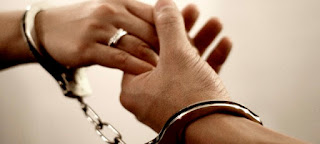One political bright spot --- action on modern slavery
There was at least one bright spot on Capital Hill before parliamentarians flew out of Canberra last week. It was the passing of Australia’s first federal law to address modern slavery in the things we buy. The passage of the law was an exercise in genuine bipartisanship, with the most active Liberals being Western Australia’s Senator Linda Reynolds and Victorian member of parliament Chris Crewther, and the most active Labor members being Tasmania’s Senator Lisa Singh and Victoria’s Clare O’Neil. O'Neil and Reynolds, representing the major parties, collaborated primarily with Greens Senator Nick McKim, independents Tim Storer and Derryn Hinch, and members of the Centre Alliance. It wasn’t just the senate doing its job, but a strong and collaborative civil society too. We might be disgusted with the near-toxic levels of tribalism in the parliament and despair at its capacity to do good, but there is room for optimism. The Senate committee system generally works well. It wa...










